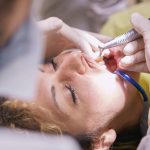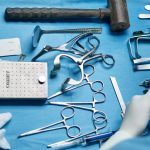
Oral surgery can seem daunting, but with the right preparation, you can ensure a smooth procedure and recovery. Getting ready for oral surgery involves not just physical preparation but also mental preparation to help you feel more at ease. Here’s how to gear up for your upcoming dental procedure. Mustering patience and being proactive about your health can help you bounce back with a bright smile and better oral health.
Your Procedure
Gaining a good grasp of what your oral surgery entails can significantly reduce any anxiety you might be feeling. Talk to your dentist or oral surgeon about the specifics: what will happen during the surgery, how long it will take, and what you can expect during recovery. A well-informed patient is a more relaxed one.
If you’re scheduled for a procedure like wisdom tooth extraction services, understanding the reasons for the extraction and the steps involved can help manage expectations and prep effectively. Dentists are often equipped with innovative technology and techniques to make the process as swift and painless as possible.
Pre-Surgical Instructions
Your dental team should provide a list of pre-surgical instructions. These might include fasting before anesthesia or taking certain medications. Make sure you understand and are able to follow these instructions to avoid any complications during surgery.
Medication and Health History
Inform your oral surgeon about any medication you’re on and share your full health history. Some medications may need to be stopped or adjusted before surgery, and any underlying health conditions can affect both the procedure and recovery.
Fasting Before Anesthesia
If you’re having general anesthesia, you’ll likely need to fast for a certain period before the surgery. This typically means no food or drink, including water, which helps prevent complications during the anesthesia.
Preparing Your Home
After surgery, you’ll need a comfortable recovery area. Stock up on soft foods, such as yogurt, pudding, or soup that will be gentle on your mouth. Set up a restful spot with extra pillows to keep your head elevated and have ice packs ready to help with any swelling.
Day-of Surgery Tips
-
Wear comfortable, loose-fitting clothing, especially tops that don’t need to be pulled over your head.
-
Arrange for someone to drive you to and from the surgery, as you won’t be able to drive yourself if you’ve had anesthesia.
-
Follow all of your surgeon’s pre-procedure instructions closely to ensure your safety and the best outcome.
Know Your Post-Surgery Plan
Understanding how to take care of yourself after the surgery is critical. Your dental team will give you postoperative instructions that may include how to manage pain, prevent infection, and techniques for changing gauze. Keep these instructions handy and follow them closely.
For specialized tooth extraction procedures, such as those following surgical extractions, your care plan will be your roadmap to recovery. Pay careful attention to the dos and don’ts, like avoiding straws or smoking, which can lead to complications like dry sockets.
Rest and Recovery
Allow yourself the time to rest after your surgery. Avoid strenuous activities that could inhibit your healing. Instead, relax and give your body the chance to heal. Make sure you have a good support system in place—family or friends who understand your recovery needs.
Have Support Systems in Place
Having someone to help you after your surgery can be incredibly beneficial. They can assist with tasks, remind you to take medication and provide comfort and support. Make sure this individual is aware of your post-surgery instructions as well.
Addressing Anxiety and Concerns
It’s natural to feel a bit nervous before oral surgery. Talk openly with your dentist or oral surgeon about any concerns you may have. They can offer reassurance and may provide strategies for coping with anxiety, such as listening to music or practicing deep breathing exercises.
If you’re feeling anxious, consider seeking a top dentist in Tustin, California or similar highly-rated professionals in your area who can provide personalized attention and support with their services.
Post-Surgery Nutrition Plan
-
Stock your pantry with nutritious, soft foods that are easy to consume without causing discomfort or disrupting the surgical site.
-
Stay hydrated with plenty of fluids, but remember to use a spoon or gently sip to avoid suction that can impact healing.
Good nutrition is an essential part of the healing process. Ensuring you have a variety of options will make it easier to maintain your strength and health while you recover.
Maintain Good Oral Hygiene
Keeping your mouth clean after surgery is paramount for healing. You may be advised to rinse with specific solutions and to avoid brushing the surgical area for a short period. Adhering to these guidelines will help prevent infection.
Final Thoughts
Preparing for oral surgery need not be a source of stress. By understanding the procedure, following pre and post-care instructions, setting up your recovery area, and having support systems in place, you can facilitate a smooth and nearly worry-free surgery experience. Most importantly, take care of yourself and allow ample time to rest and heal.
Although it might take time to return to your normal routine, following these steps will help ensure a successful recovery. Keep open communication with your dental care team, and don’t hesitate to reach out to them with any concerns or questions you may have during your recovery period.























































